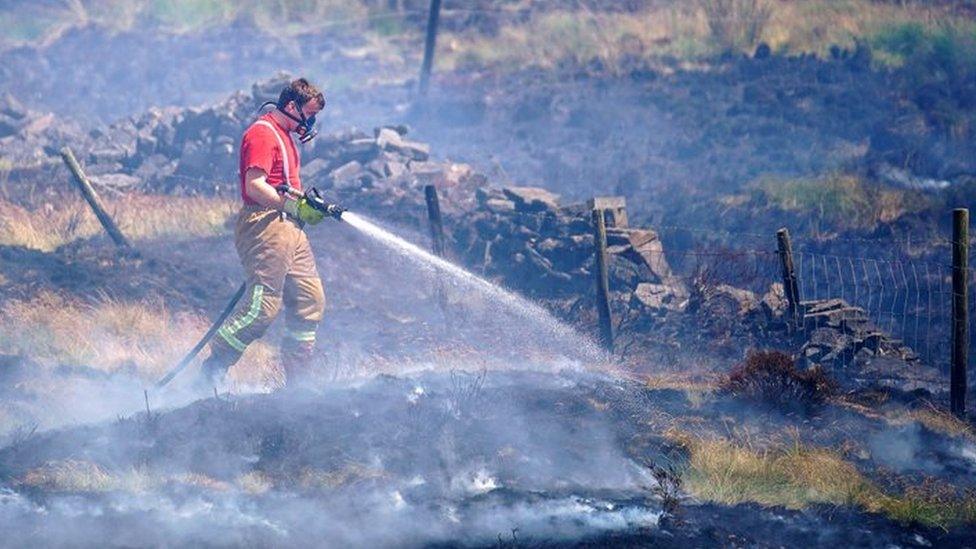'Few signs' of recovery at wildfire-hit estate
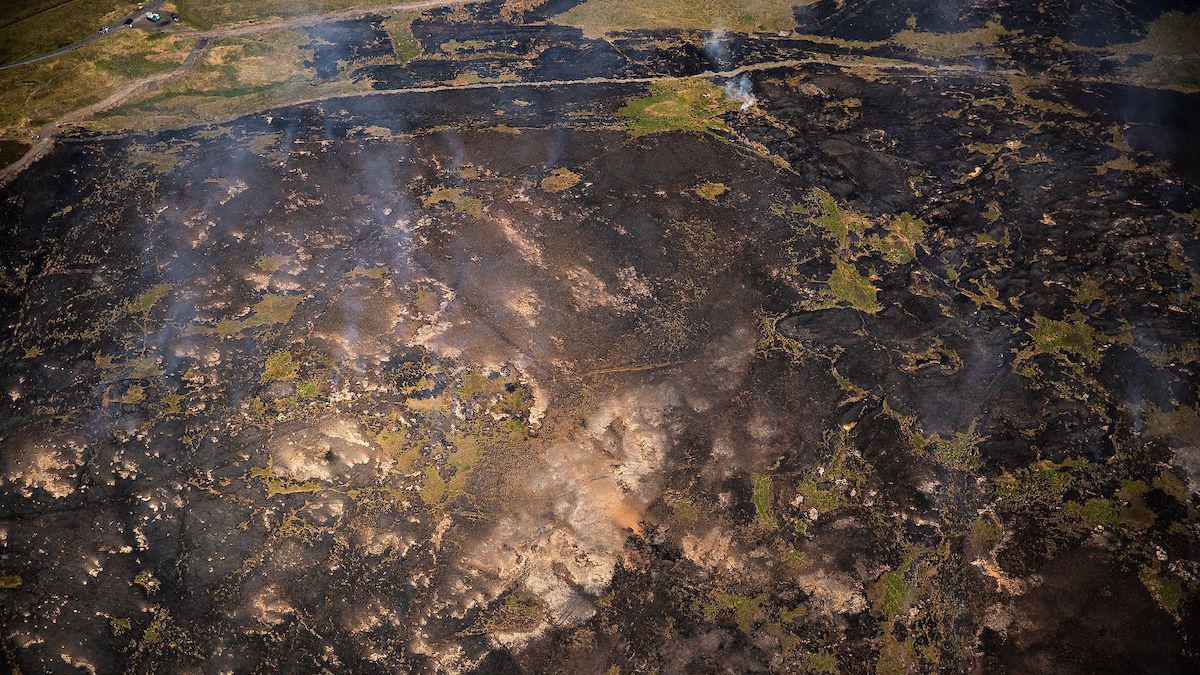
Devastating wildfire during a summer drought damaged about a third of the estate
- Published
Peatland hit by devastating wildfires six years ago is struggling to recover, conservationists have said, although surveying shows nature is starting to make a comeback.
Emergency services worked day and night for 41 days to tackle the blaze in the summer drought of 2018 at the Smithills estate near Bolton, Greater Manchester.
The blaze damaged about a third of the estate, which includes Winter Hill, harmed moorland and wildlife and killed about 2,000 trees.
But surveying has shown plants - including all-important sphagnum moss - are regrowing, and birds such as kestrels and skylarks have been spotted.
'Mosaic of habitats'
Surveyors have tested 2m by 2m (6.5ft by 6.5ft) squares to chart the wildlife, peat and plants.
Smithills site manager Oliver Stainthorpe, of the Woodland Trust, said: "During the fire all the peat mass was damaged in some way, but on average 20cm of peat was completely lost and burnt away.
He said there were "still very few signs" of it recovering, adding: "The grim reality is that it is takes something like 200 years to regenerate the peat to how it was."
He added: "It shows the damage catastrophic events, which are more likely due to climate change, can have on nature."
But Mr Stainthorpe said it was "not all doom and gloom" as nature was "bouncing back in some ways".
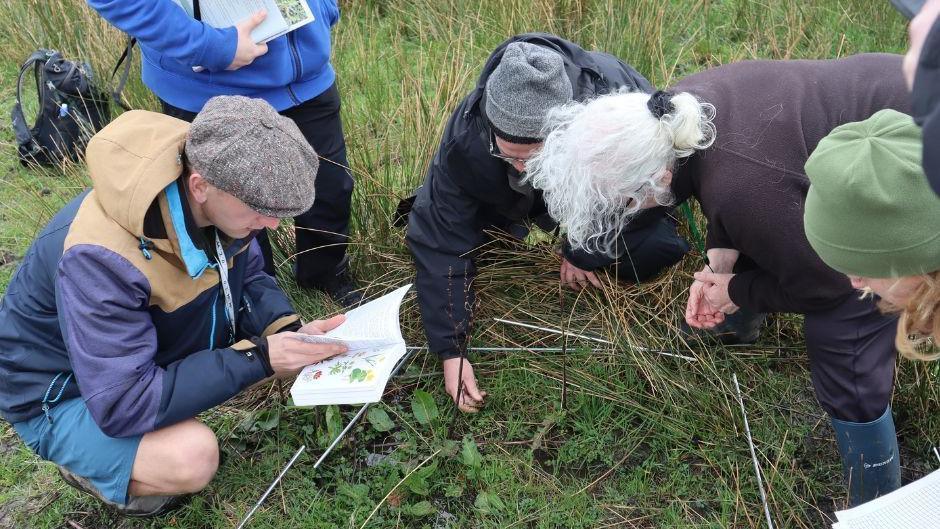
Surveying work has been carried out across the estate
Surveys have found species including purple moor grass, turfed hair grass, wavy hair grass, mat grass and sphagnum moss, a key species known as the "sponge of the moorland" for its water-retaining properties.
Birds including meadow pipits, kestrels and skylarks have been spotted.
The peatland on the site was not in good condition before the blaze, as it had been artificially drained for water to be used in industry, the Woodland Trust said.
Mr Stainthorpe added: "Our key aim is the restoration of the site, Smithills is blessed with a mosaic of habitats, peatlands and uplands oak woodland and upland wet woodland."
He said improved heathlands would "increase local biodiversity, capture carbon, and decrease flood risk".
Smithills is part of the Northern Forest, a scheme to establish 50 million trees across a swathe of northern England from Liverpool to Hull.
Listen to the best of BBC Radio Manchester on Sounds and follow BBC Manchester on Facebook, external, X, external, and Instagram, external. You can also send story ideas to northwest.newsonline@bbc.co.uk, external
Related topics
- Published9 June 2024
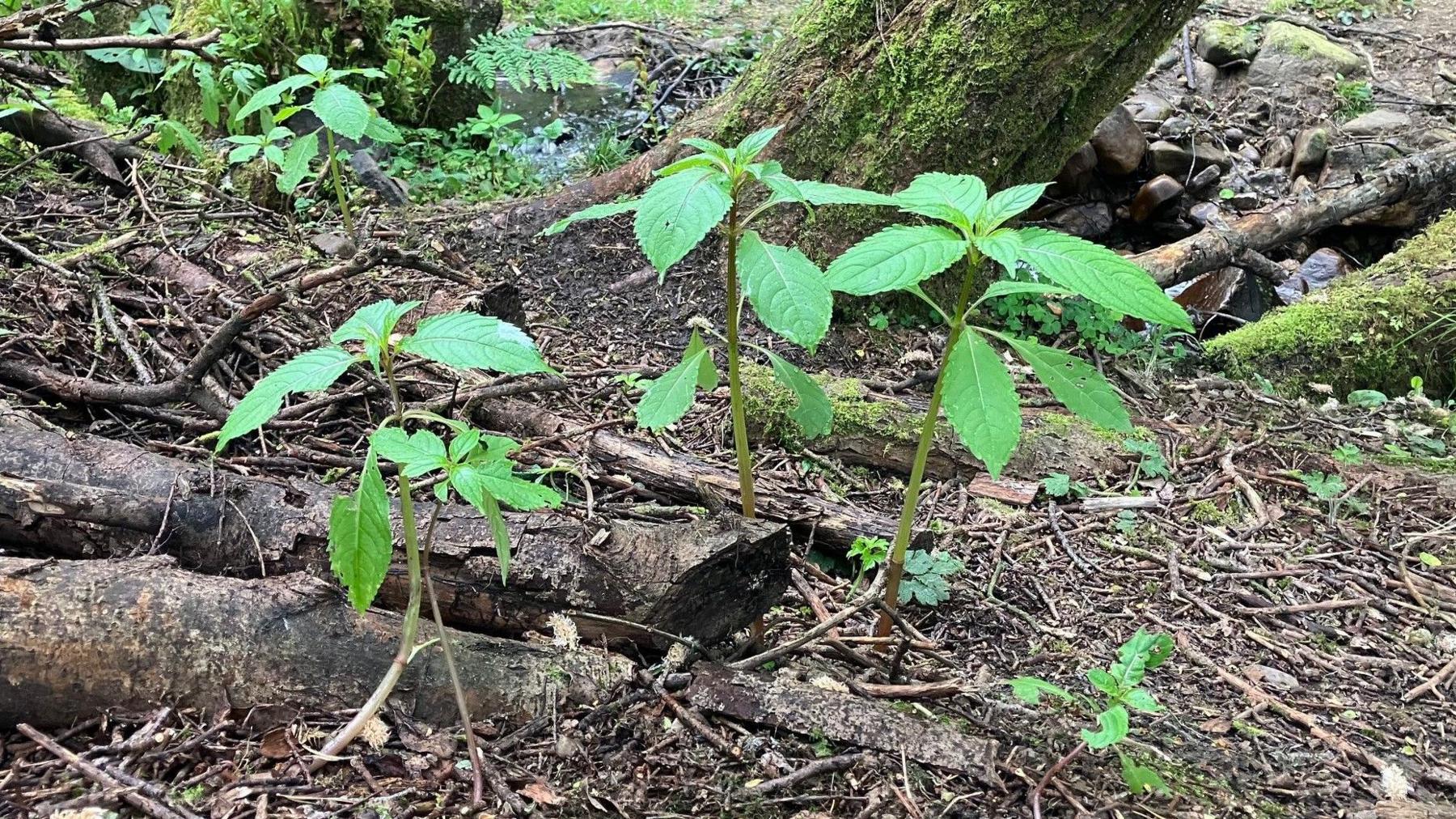
- Published28 January 2019
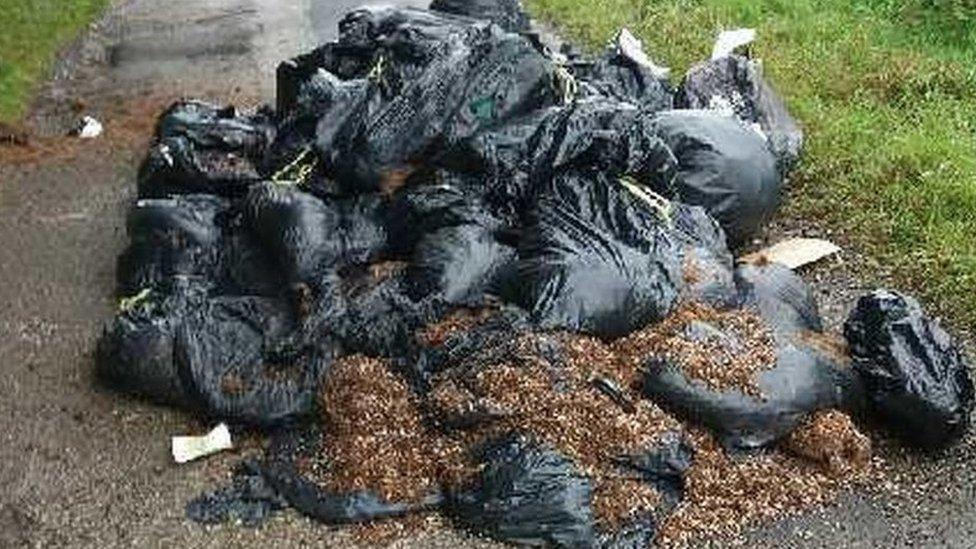
- Published8 August 2018
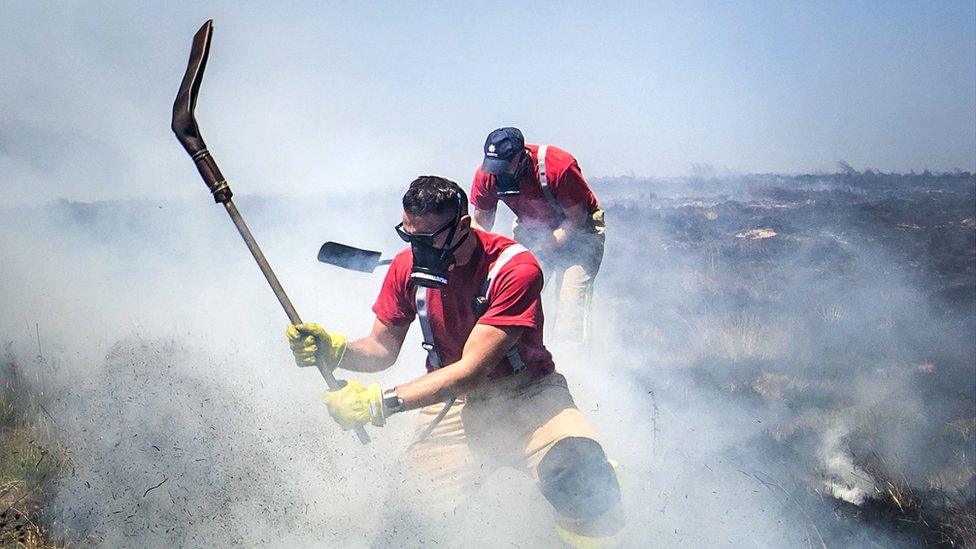
- Published5 July 2018
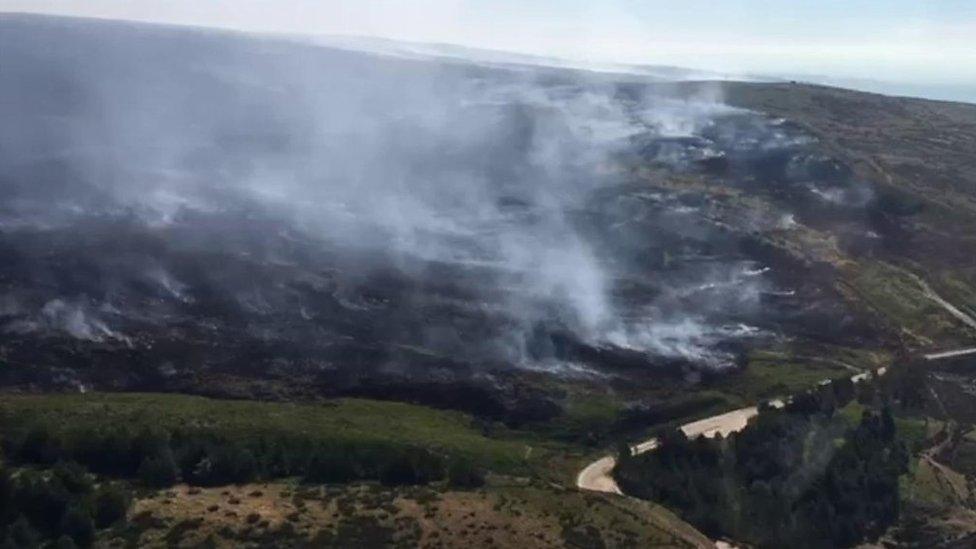
- Published2 July 2018
